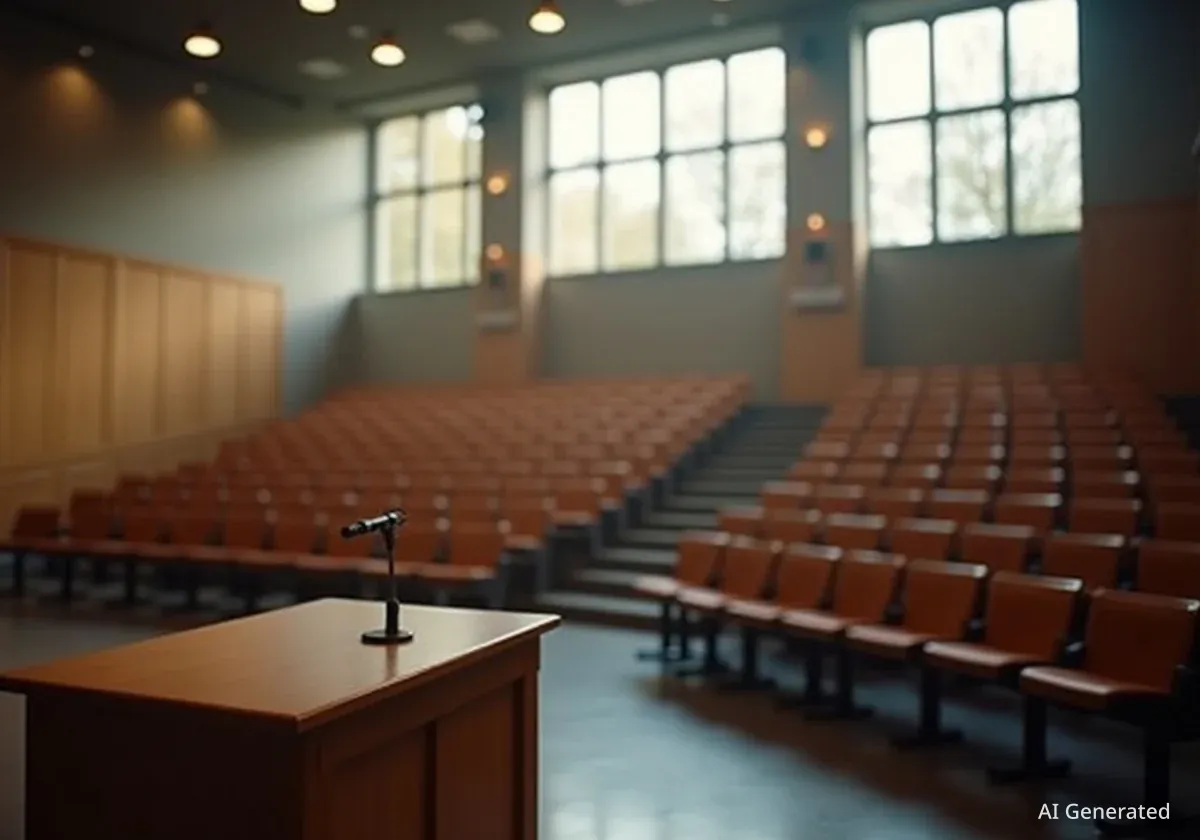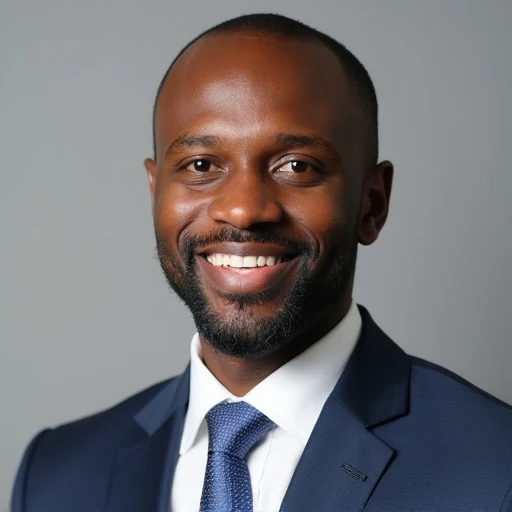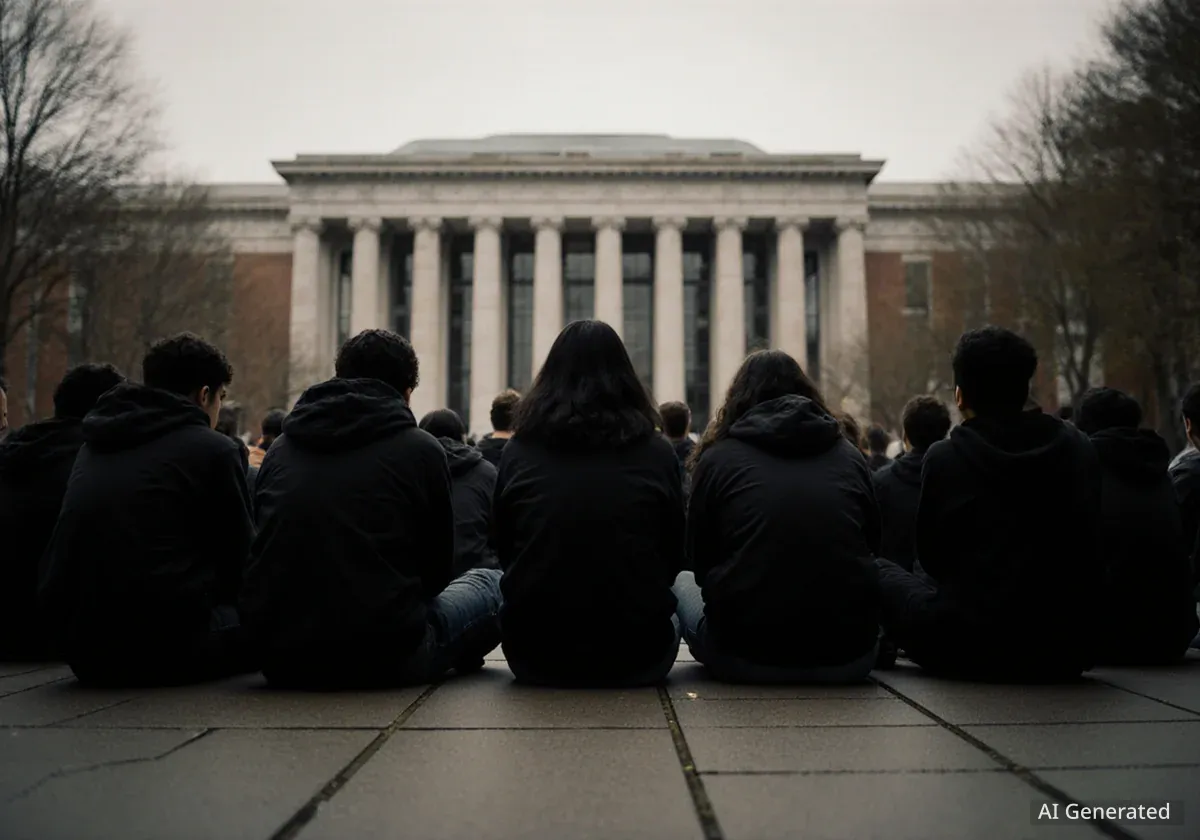The Boston College Republicans announced last Thursday they disavowed remarks made by their guest speaker, Nick Solheim, the founder and CEO of American Moment. Solheim's speech, delivered on October 20, was deemed offensive and inflammatory by the student organization's executive board.
American Moment is a Washington, D.C.-based conservative nonprofit. Its mission involves recruiting and training young right-leaning professionals for roles in government, policy, and media, including positions within the Trump administration.
Key Takeaways
- Boston College Republicans disavowed remarks by guest speaker Nick Solheim.
- Solheim's speech included references to violence and political extremism.
- The student group emphasized its commitment to civil discourse.
- Conservative organizations like The Heritage Foundation defended Solheim.
- The incident sparked a wider debate on free speech and rhetoric in political discourse.
Solheim's Controversial Speech Content
Nick Solheim began his address to the Boston College Republicans with a strong statement. He told the audience, “I want to start with a heavy exhortation—you need to be willing to be killed.”
He continued to elaborate on this theme, suggesting a profound level of opposition from political adversaries. Solheim stated, “Live in recognition of the fact that they will kill you and everybody that you love to get what they want—open borders, sex changes for minors, so-called gay marriages, health care for illegal immigrants, and so on.”
Key Fact
Nick Solheim is the founder and CEO of American Moment, a conservative nonprofit focused on training young professionals for government and media roles.
Solheim then escalated his rhetoric, claiming that if opponents were willing to target policymakers, they would also be willing to target voters. He specifically referenced the assassination of Charlie Kirk and alleged phone texts from Jay Jones, the Democratic nominee for attorney general in Virginia. These texts, Solheim claimed, called for the death of Republican Virginia House Speaker Todd Gilbert and his children.
"The likely next attorney general of the State of Virginia has called for the death of little fascist two- and five-year-old children of one of his Republican colleagues and has not been denounced by a single Democrat in or seeking federally elected office," Solheim asserted during his speech.
Call for Non-Violence Despite Stark Warnings
Despite these inflammatory statements, Solheim also urged the audience not to resort to political violence. He emphasized, “we don’t assassinate, attack indiscriminately, or violate our enemy, and for a simple reason.” The reason was not immediately clear in the reported remarks, but it suggested a distinction in tactics.
The duality of his message—warning of extreme violence while advocating against it—created a complex and challenging atmosphere for the student group.
Boston College Republicans' Response
The Boston College Republicans executive board quickly reacted to Solheim's speech. On October 24, they issued a letter denouncing his remarks. The board stated that Solheim's views and rhetoric “were unprecedented and unrepresentative of the views of our club members, and we do not endorse any of these views.”
Context on American Moment
American Moment is known for its focus on developing the next generation of conservative leaders. It aims to prepare them for influential positions within the conservative movement and government.
The student organization emphasized its commitment to respectful engagement. "We uphold the notion of civil discourse and believe that there is always a time for respectful discussion, even with those who do not agree with us," the executive board's letter added.
This statement highlighted a clear divergence between Solheim's confrontational tone and the club's stated values of civil debate.
Reactions from Other Conservative Groups
Following the Boston College Republicans' disavowal, other prominent conservative organizations came to Solheim’s defense. Both The Heritage Foundation and the College Republicans of America criticized the Boston College student group, accusing them of weakness and disloyalty to conservative principles.
Kevin Roberts, President of The Heritage Foundation, issued a strong statement. He declared, “The future won’t belong to soft men chasing comfort. It will belong to those who risk safety to defend their homeland, their families, and their faith.”
Calls for Leadership Change
Ryan Matthew Meuhaus, Chief of Staff for The Heritage Foundation, echoed Roberts' sentiments on X (formerly Twitter). He wrote, “Our nation is in the midst of a cold civil war. If you’re not willing to die to save it for your children and grandchildren, pursue a different occupation.”
William Branson Donahue, Founder and Chairman of College Republicans of America, went further. He openly denounced the Boston College Republicans' stance and called for the removal of Jake Wiepert, the club's president.
- The Heritage Foundation defended Solheim's rhetoric as necessary for conservative defense.
- College Republicans of America called for the removal of the Boston College Republicans' president.
- These reactions highlight a divide within the broader conservative movement regarding appropriate political rhetoric.
The Broader Debate on Political Rhetoric
This incident at Boston College reflects a wider national debate regarding the tone and intensity of political discourse. The line between strong advocacy and inflammatory rhetoric continues to be a point of contention.
For student organizations, balancing free speech principles with the responsibility to foster a civil and inclusive environment can be challenging. The Boston College Republicans' decision to disavow Solheim's remarks underscores this tension.
The differing responses from various conservative groups also illustrate a generational and ideological split. Some older, more established organizations appear to embrace a more confrontational approach, while the student group sought to maintain a tone of respectful discussion.
The incident serves as a case study in how political figures and their rhetoric can impact student groups and spark reactions across the political spectrum.





